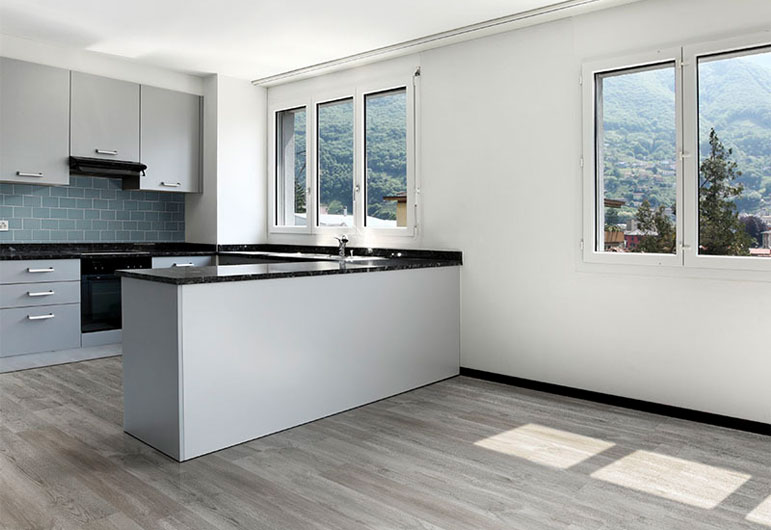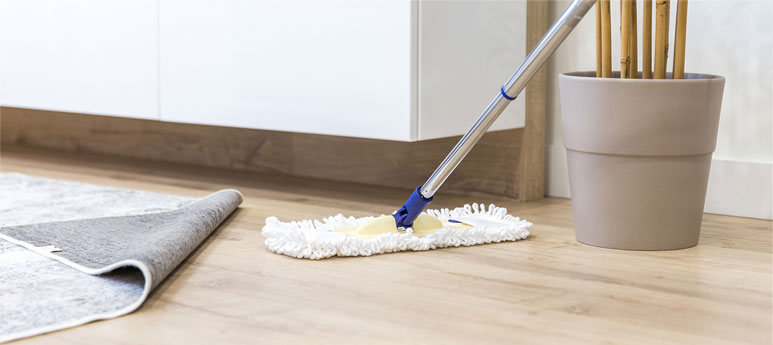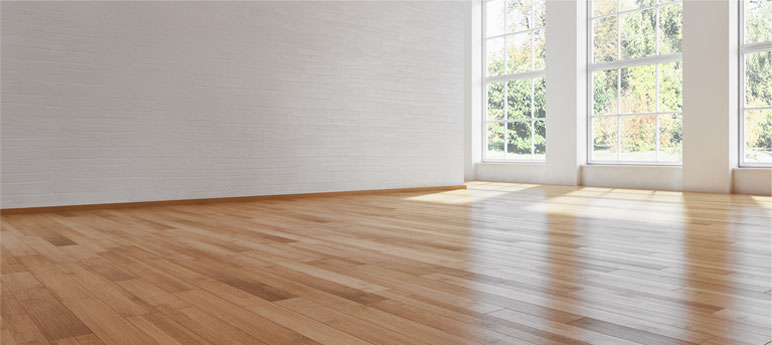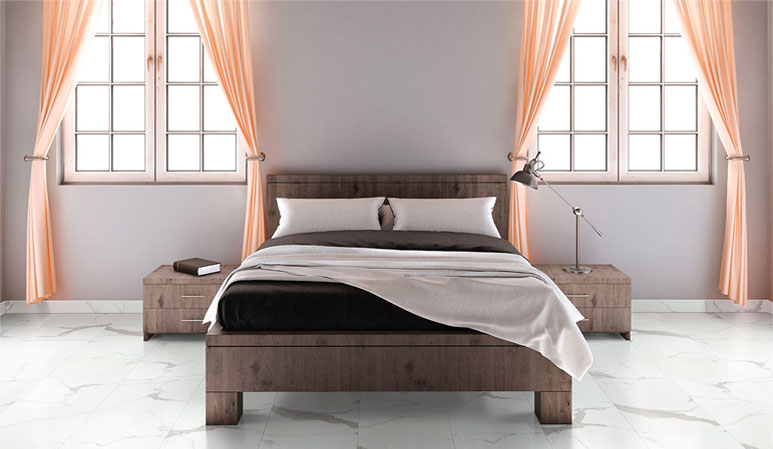Luxury Vinyl Flooring Pros And Cons
Before settling on any flooring material, you'll want to weigh all the pros and cons, and this goes for luxury vinyl tile (LVT) and luxury vinyl plank flooring (LVP) as well. After all, you want to kn ... Read More
With their many attractive benefits, including low maintenance, durability, and excellent price point, luxury vinyl tile and luxury vinyl planks – often referred to as LVT and LVP – are taking the flooring industry by storm. Homeowners and commercial business owners are both jumping on the trend, but what's the real story behind this modern craze, and is luxury vinyl flooring indeed the perfect material, or is it too good to be true? We break down all the important pros and cons of luxury vinyl flooring that can help you decide for yourself.

PROS OF LUXURY VINYL TILE AND PLANK FLOORING
Whether considering the material for a residential or commercial space, the durability of both LVT and LVP is an attractive feature. Luxury vinyl flooring is 100% waterproof and can be installed in indoor spaces that are prone to puddles and other moisture, such as mud rooms, laundry rooms, basements, kitchens, and bathrooms. And because it comes in many designs that convincingly mimic hardwood and natural stone, it is a perfect substitute for areas that are not suited for those natural materials. Besides standing up to drips and steam, luxury vinyl flooring is not susceptible to stains, scuffs, scratches, mold, or mildew, making it a popular choice in heavy-traffic areas and entry zones.
Of course, no floor is indestructible, but if you want to add an additional layer of protection to your LVT, you should add rugs or runners and put sliders or felt on the bottom of furniture legs.
For many homeowners and business owners, the promise of an easy-to-clean floor is the luxury vinyl flooring benefit that clinches the deal. It already has a protective wear layer and does not require sealing, which means that waxing, polishing, and staining are a thing of the past with LVT. While hardwood, natural stone, and even some types of tile require extra TLC, luxury vinyl flooring is super low maintenance – simply sweep or damp mop regularly, or even run the vacuum over the floor with the beater bar turned off – and your floor will look pristine for years!

When it's time for a more thorough deep clean, a bucket of hot water with a cup of white vinegar will do the trick for mopping. Check with the manufacturer first before using all-purpose or commercial cleaners, as they will be able to fill you in on any vinyl flooring care and maintenance recommendations. And, of course, steer clear of harsh chemicals that contain bleach, abrasive ingredients, or ammonia, which could harm the protective wear layer.
In the flooring world, LVF is at an attractive price point compared to hardwood, stone, or even carpet. On average, LVT runs about $2-5/sq. ft, a cost that may include installation. In contrast, the carpet will set you back approximately $3-5.50/sq. ft., and hardwood floors will lighten your pocketbook by anywhere from $8-25/sq. ft. And considering that LVT and LVT can convincingly give you the look of natural wood, the price difference is potentially a game changer.
Besides the initial investment, LVP and LVT flooring will cost less to maintain over its lifetime than carpet, which requires regular cleaning and will have to be replaced sooner. Furthermore, luxury vinyl flooring can be installed directly over an existing floor if there are no bumps or bulges. This means time savings and the effort of ripping up the previous floor before laying down your new tile or plank flooring. In addition to LVT and LVP, a third option is sheet vinyl flooring, which is even more cost-effective. Although sheet vinyl is less durable than LVT and LVP, it is a more affordable option. And because it's all one big piece, you can't simply replace an individual damaged tile or plank as you can with LVT and LVP.
We would be remiss if we represented luxury vinyl flooring as the perfect flooring solution because that doesn't exist. And while it has several attractive features that explain why many homeowners and business owners are choosing it, there are a few things you should know before you jump on the bandwagon.
Yes, LVT and LVP are highly durable, but that's not to say they are indestructible. For example, dropping a heavy item or dragging something weighty over the surface could dent the floor or leave scuff marks. However, vinyl tile and plank flooring will stand up to such mishaps better than hardwood, so that's something to consider.
Sunlight is powerful, so LVT and LVP can fade if they are regularly exposed to direct sunlight. Luxury vinyl flooring performs better than cheaper vinyl, but sun damage is an important factor to keep in mind.

While you could keep your blinds closed to prevent fading, that might make your rooms less inviting. A better solution is to put a UV-blocking film on your windows to tint them slightly and block these powerful rays without darkening your rooms.
In addition, you might consider changing the format of your furniture placement now and then. The areas covered by rugs or furniture are more protected from the sun's rays, and over time, keeping the same configuration could mean your floor will fade unevenly – which is more noticeable. On the other hand, by changing things up a bit, you can extend the life of your floor's unfaded beauty.
One last strategy to consider when buying vinyl flooring is to purchase additional tiles or planks. It's a key selling point of both LVT and LVP that you can easily replace one tile or plank as needed, but that means you should buy it upfront to ensure you aren't stuck requiring an out-of-stock item. If you have extra material, you can replace any faded or damaged tiles or planks down the road and make your floor look new again in no time.
If you choose luxury vinyl of the click-lock floor tile variety, this won't be a problem, as it's easy to remove and replace a single tile or the whole floor. However, if you opt for sheet vinyl or glue down LVT, it can be difficult to get up once the adhesive has dried. However, there is a strategy for removing glue-down flooring – cut it down into strips a foot wide before pulling it up, then scrape off any remaining glue residue and vacuum anything left over.
Available in a virtually endless number of designs and colors – including hardwood and natural stone looks – LVP and LVT flooring is an attractive and durable option for home- and business owners who require low-maintenance flooring. And because vinyl flooring has come such a long way in terms of technology, you won't even recognize it as the great-grandchild of your grandma's kitchen floor. It comes in a wide array of realistic wood and stone looks while offering a level of water resistance and durability that natural materials can't rival. However, before diving in, consider the pros and cons of LVT and LVP, and then confidently choose your next flooring project.
